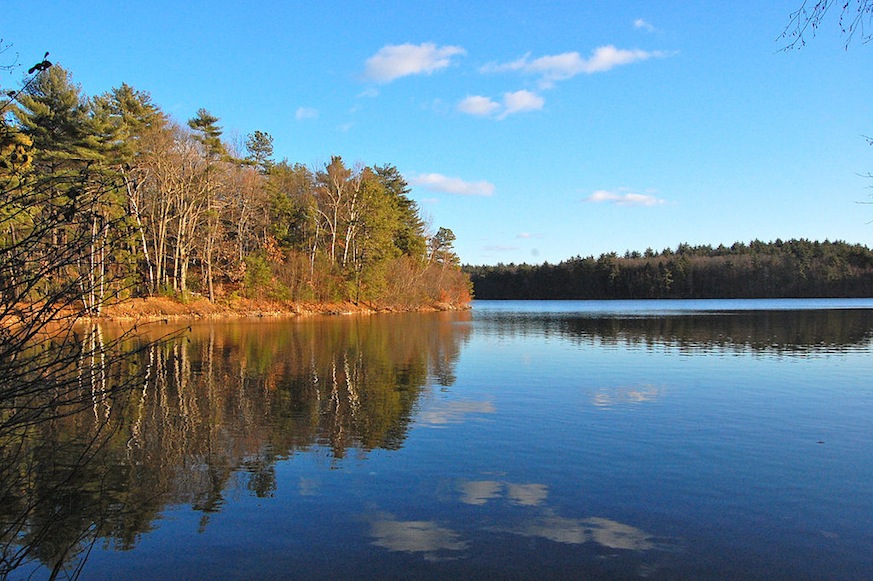Walden Pond was a refuge for poet and naturalist Henry David Thoreau, a pristine and isolated piece of nature in Concord, Massachusetts.
But the famous lake (yes, Walden Pond is actually a lake) is no longer a secret. About half a million people visit the state reservation each year, and those visitors’ recreational practices and, ahem, restroom habits have been harming the water.
Basically, so many people swimming and peeing in the pond is having some adverse effects.
Those findings come from a new study published in the journal PLOS ONE this week. Researchers from Paul Smith’s College in Paul Smiths, New York, spearheaded by Dr. Jay Curt Stager, looked at how climate change and tourist activity have been altering the ecosystem of Walden Pond.
To embark on this study, researchers looked at sediments from the bottom of the lake that date as far back as 1,800 years.
Those samples contain the remains of algae that have been preserved in the sediment, allowing researchers to document how the growth of algae in the lake has changed over time.
The levels of phytoplankton, a type of microscopic algae, in Walden Pond have gone up since the 1920s, which is when the recreational shoreline of the lake was developed.
It’s the sediments running into the water from the disturbed shorelines and footpaths, “along with human wastes associated with swimmers,” that have led to that increase, because those things provide nutrients to the algae.
One nutrient, in particular, is phosphorus, and, according to the paper, “more than half of the summer phosphorus budget of the lake may now be attributable to urine released by swimmers.”
More algae means that the water becomes clouded, and the iconic beautiful lake could become a murky, algae-filled mess. Plus, when the water is not as clear, the sun doesn’t filter down through the lake, meaning plants, and the organisms that rely on them for food, die.
As our planet’s climate changes, experts expect the water to get warmer, which also fuels the algae growth. And then, in a cycle, the warmer weather will drive more people to swim in the lake, adding more urine into the water, feeding the phytoplankton even more. Researchers suggest “swimmer-education programs” or a separate swimming pool nearby to help stave off some of those changes.
“The sediments of Walden Pond record major ecological changes to this iconic lake since the time of Thoreau,” Stager said in a statement. “They also warn of more changes to come in a warming future.”



















